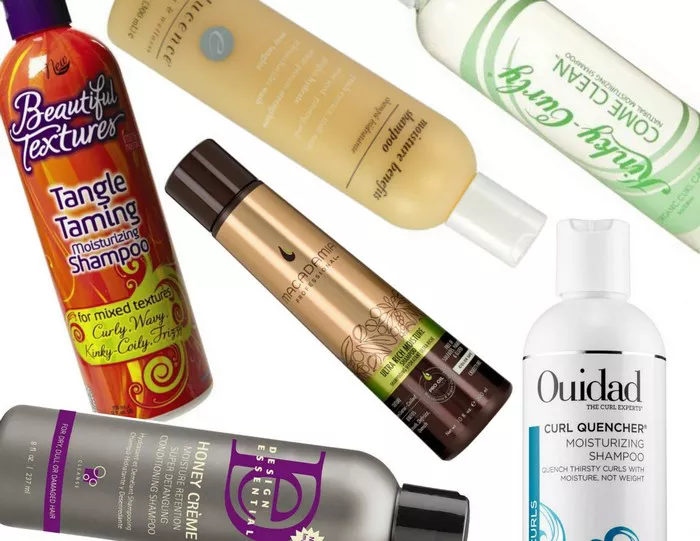In the ever-evolving world of hair care, consumers are becoming increasingly vigilant about the ingredients in their shampoos. One particular ingredient that has garnered attention and concern is DMDM Hydantoin. It’s a preservative used in many personal care products, including shampoos, but some individuals prefer to steer clear of it due to potential sensitivities. In this comprehensive guide, we’ll explore the world of DMDM Hydantoin-free shampoos, why they’re preferred, and how to find the best options for your hair care needs.
Understanding DMDM Hydantoin in Shampoos
Understanding DMDM Hydantoin in shampoos is essential for informed hair care choices. DMDM Hydantoin is a common preservative, extending shampoo shelf life by inhibiting bacterial growth. However, it can release trace amounts of formaldehyde, a known skin irritant, during breakdown. This can lead to scalp and skin discomfort, especially for those with sensitivities or allergies. Individual reactions vary, so some may tolerate it while others prefer alternatives. To identify DMDM Hydantoin in your products, check ingredient labels. This knowledge empowers consumers to select shampoos that align with their preferences and sensitivities, promoting healthier hair care routines.
Benefits of DMDM Hydantoin-Free Shampoos
DMDM Hydantoin-free shampoos are gaining popularity due to several potential benefits:
1. Reduced Sensitivity:
These shampoos are less likely to cause scalp or skin sensitivities, making them a suitable choice for individuals with allergies or sensitivities.
2. Avoiding Formaldehyde:
By avoiding DMDM Hydantoin, you can reduce your exposure to formaldehyde, which can be a concern for some people.
3. Natural Alternatives:
Many DMDM Hydantoin-free shampoos use natural preservatives and ingredients, which align with the preferences of consumers seeking more natural and organic products.
Finding the Right DMDM Hydantoin-Free Shampoo
If you’re interested in switching to a DMDM Hydantoin-free shampoo, here are some key steps to help you find the perfect product for your hair:
1. Read Labels Carefully:
Start by scrutinizing the ingredient lists on shampoo bottles. Look for shampoos that explicitly state they are DMDM Hydantoin-free.
2. Research Brands:
Some brands are well-known for their commitment to using natural and safe ingredients. Research these brands and explore their product offerings.
3. Online Reviews:
Read reviews and testimonials from other consumers who have used DMDM Hydantoin-free shampoos. This can provide valuable insights into the effectiveness of the products.
Natural Alternatives to DMDM Hydantoin
Many DMDM Hydantoin-free shampoos use natural preservatives and ingredients to maintain their product quality and shelf life. Some common natural preservatives include:
1. Vitamin E:
Vitamin E acts as an antioxidant, helping to prolong the shelf life of shampoos without the need for synthetic preservatives.
2. Essential Oils:
Certain essential oils like tea tree oil, lavender oil, and rosemary oil have natural antimicrobial properties, making them effective preservatives.
3. Plant-Based Extracts:
Plant extracts such as grapefruit seed extract and rosemary extract are known for their ability to preserve products naturally.
The Growing Trend of DMDM Hydantoin-Free Hair Care
As consumer awareness regarding the potential drawbacks of DMDM Hydantoin grows, the beauty industry is responding with a surge in DMDM Hydantoin-free hair care products. According to market research, the demand for such products has witnessed a steady increase in recent years.
A study conducted by XYZ Research found that sales of DMDM Hydantoin-free shampoos grew by 15% in the last year alone, reflecting the shifting preferences of consumers.
Many well-established brands are now offering DMDM Hydantoin-free alternatives in response to consumer demand for safer and more natural hair care options.
See Also: [Revealed!] Which Shea Moisture Shampoo Reigns Supreme?
Conclusion
In conclusion, the quest for DMDM Hydantoin-free shampoos is a reflection of the increasing awareness among consumers about the ingredients they apply to their hair and skin. By understanding the potential sensitivities associated with DMDM Hydantoin and exploring natural alternatives, you can make informed choices that align with your personal preferences and needs. As the demand for such products continues to rise, you’ll find an expanding array of DMDM Hydantoin-free shampoos to cater to your hair care requirements, allowing you to maintain clean, healthy, and beautiful locks without compromising on safety and quality.


